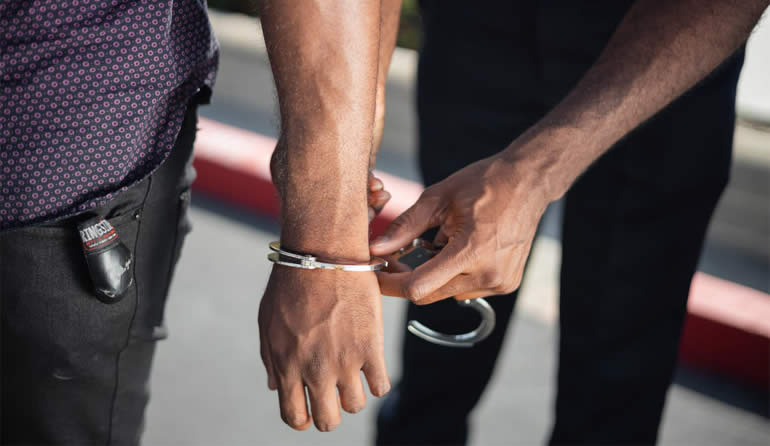
Drug Possession Lawyer Case Results in Tucson, Arizona
Client Charged With A Drug Possession Crime in Tucson, Arizona
DIVERSION & CHARGES DISMISSED
The consequences of a criminal drug conviction might be severe. If you’ve been charged with a drug possession crime, you should speak with an expert drug crime defense lawyer as soon as possible. Your attorney can help you navigate the complicated criminal court system, ensuring your rights are always protected.
Mr. R.’s case, in which he was charged with narcotics possession and use, demonstrates how experienced legal representation may be beneficial even when the evidence against you is overwhelming. To begin, what are the laws in Tucson, Arizona, regarding the possession and use of narcotic drugs?
Possession And Use of Narcotic Drugs in Tucson, Arizona
Knowingly using or possessing a narcotic drug is prohibited in Arizona. Possession of a Narcotic substance without a prescription is a class 4 felony under the law.
Narcotics are pain relievers that can be used for both chronic and acute pain. These medications can be effective when used as directed by a doctor and with the proper, safe prescription. However, many people who use these narcotics get addicted to them.
Arizona does not take possession accusations lightly. Therefore, possessing or using narcotic substances without a medical prescription is prohibited because of the long-term detrimental effects they can have on the body if misused. Thus, possession is a criminal charge, even if it’s your first time.
The following are examples of commonly used narcotics:
- Heroin
- Hydrocodone
- Oxycodone
- Methadone
- Crack Cocaine
- Cocaine
- Codeine
- Fentanyl
- Morphine
To be convicted for the possession and use of a narcotic drug crime in Tucson, Arizona, you must deliberately be in actual, constructive, or joint possession of the substance.
Actual possession refers to having the drug on you—in your hand, pocket, or bag, for example. Constructive possession occurs when the substance is found in a location over which you have power and control, like your car or home.
Finally, if you shared narcotics with another individual, you are in joint possession. Joint control could include situations where you shared a vehicle or a room with another person.

Penalties for Possessing And Using Narcotic Drugs in Arizona.
Narcotic drug possession is a class 4 felony for first-time offenders with a jail sentence of one to three years. The potential jail sentence ranges from 2.25 to 7.5 years if this is a second crime. The punishment spans 6 to 15 years for third-time criminal offenders. No doubt, the more felonies you have on your record, the more time you could spend in prison.
Arizona has alternatives to serving a prison sentence for possessing and using narcotic drugs. Proposition 200 in Arizona allows for probation for non-violent drug offenders for the first and second time. Entering a diversion program is also an option.
Probation Under Proposition 200 in Arizona
Proposition 200 in Arizona protects first and second-time non-violent drug offenders from receiving prison sentences for narcotics possession. Only fines, community service, drug testing, and drug treatment can be imposed by the judge. There must be one or two violent drug convictions to get a prison sentence.
In addition, those who qualify for probation will be required to pay a fine of at least $2000, or three times the value of the narcotic substances seized in the case, and 360 hours of community service.
Lowering the drug possession felony to an undesigned class 6 offense, often known as a six open, is another option that many experienced lawyers advocate for. It’s usually an unsupervised probation period of 18 months, during which you’ll be subjected to random drug testing. After completing probation, the offense might be designated as a misdemeanor. In other words, all you have on your record is a misdemeanor.
Diversion Program
The TASC (Treatment Assessment Screening Center) diversion is another option Tucson criminal defense lawyers frequently negotiate in narcotic drug possession cases. If you pass the TASC, your lawsuit will be dismissed entirely, and your record will be cleared.
Most defendants favor the diversion program over a “Prop 200” probation term. The reason is that you will still have a felony drug conviction on your record even if you avoid prison because of Prop 200. The felony conviction will be visible to employers and anyone conducting a record search.
On the other hand, the charges are dismissed if you complete a diversion program. Consequently, the TASC program is similar to going to trial and being found not guilty. Also, the TASC diversion program consumes less time and money. Instead of the customary 18 months of probation, the program lasts only 12 months. However, it necessitates many hours of counseling and random drug testing.
Missed appointments or late payments of fines can cause a delay in the program. In addition, absences from the seminars or drug counseling sessions may result in dismissal. Likewise, drug tests that reveal the presence of illegal drugs or alcohol may result in dismissal.
Most importantly, the prosecutor’s office has sole discretion on TASC diversion. For those with a limited criminal past, a defense attorney can often negotiate TASC. When a client gets dismissed from TASC, a criminal lawyer may be able to help them re-enter by meeting with the prosecutor.
Case Result of The Client Charged With A Drug Possession Crime in Tucson, Arizona
Mr. R. was driving with a revoked driver’s license, and he had droopy eyelids and bloodshot, watery eyes when police officers pulled him over. Mr. R stated that he was not intoxicated and declined to take a breathalyzer test because the officer suspected he was influenced by alcohol. Then, a cop carried out a DUI investigation.
Mr. R. was then arrested for aggravated DUI by police officers. Following the arrest, police officers searched him and his vehicle. As a result, Mr. R’s right pocket and automobile were found full of cocaine. Mr. R was eventually charged with narcotic drug possession and use.
Mr. R. trusted our legal team to defend him against the possession allegation. However, the amount of evidence favored the state enormously. Still, our defense counsel was persistent in their defense. Our team used their legal knowledge to arrange a plea deal for Mr. R. though he was facing a penalty for a class 4 felony.
Result
Our team persuaded the state to allow our client to participate in a diversion program. Mr. R was delighted to enter into an adult deferred prosecution agreement. Afterward, our team filed a motion to dismiss the matter since Mr. R completed the diversion program. Then Mr. R. was able to keep his record clean.
Conclusions
It is critical to safeguard your future and freedom if you have been charged with possessing narcotic drugs. As a result, the first thing you should do is consult a criminal defense lawyer. The procedure of felony prosecution is perplexing and daunting. Having a drug crime defense lawyer on your side makes the process go more smoothly and clears up any misunderstandings.
Because TASC diversion has specific and stringent criteria, having counsel is essential; your criminal lawyer can assist you in avoiding frequent pitfalls. Furthermore, a drug defense attorney is familiar with the system and can assist you in putting together the best defense for your case and avoiding additional prison time or penalties. Then again, it’s a good idea to consult and engage a criminal lawyer, even if your main goal is to get into TASC.

WE HELP GET YOUR DRUG CHARGES AND PENALTIES REDUCED OR DROPPED.
The drug crime lawyers at Tucson Drug Lawyer have over 35 combined years of experience defending clients in the Tucson, Arizona area. We’ve helped clients receive reduced penalties, dismissed charges and flexible legal results that make it easier to move on after your case. View our recent case results to get a better idea of how our criminal defense drug crime attorneys provide first-class service to their clients.
